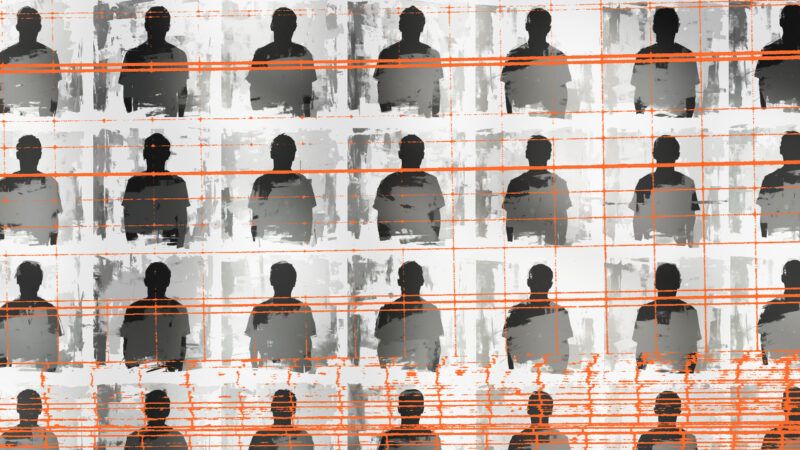Georgia Judge Issues Potentially Unconstitutional Gag Order in 'Cop City' Trial
The trial of the first of 61 defendants starts today, but the judge has seemingly forbidden any of the defendants or their attorneys from discussing the case.

On Monday, jury selection began in the first trial against a defendant indicted for opposing an Atlanta police training facility. The trial has already produced possible civil liberties violations, with the judge issuing what could be an unconstitutional gag order.
For nearly two years, activists in Georgia have engaged in a protest movement opposing the proposed Atlanta Public Safety Training Center. The facility, which opponents derisively call "Cop City," is to be built on an undeveloped patch of land in the forest. The protests have occasionally turned violent, and in January, police shot and killed a protester. (Police claim the activist fired first, though subsequent autopsies dispute that notion.)
In September, the state attorney general announced indictments against 61 defendants under the state's Racketeering Influenced and Corrupt Organizations (RICO) Act. RICO statutes, originally drafted to go after mafia bosses, allow prosecutors to build cases against entire criminal organizations rather than simply low-level enforcers.
One Cop City defendant, Ayla King, filed a motion in October demanding a speedy trial. Last week, Fulton County Superior Court Judge Kimberly Esmond Adams granted the motion, setting a trial date for Monday. Jury selection began this afternoon.
But Adams went much further, ordering that the parties and their attorneys "refrain from any extra-judicial communications concerning the proceedings, including, but not specifically limited to, granting interviews, making or expressing opinions about the subject matter of these proceedings; posting, commenting or 'liking' posts on social media; or, more generally, any other communication concerning the proceedings, the parties or the subject matter of the indictment."
"That's an unconstitutional order," says Andrew Fleischman, an Atlanta attorney with Sessions & Fleischman. "Ordinarily, you need to establish the necessity of a gag order," which should have a "narrow scope." U.S. District Judge Tanya Chutkan, who is currently presiding over the federal trial against Donald Trump for his attempts to overturn the 2020 election results, issued a gag order against the former president in October. Chutkan's order specifically aimed to prevent Trump from "publicly targeting" the other participants in the trial, including not only witnesses but court reporters. On Friday, the U.S. Court of Appeals for the D.C. Circuit upheld the order but slightly narrowed its scope, removing a prohibition on Trump criticizing Special Counsel Jack Smith.
"The appeals court narrowed it because, of course, it's a restriction on speech," Fleischman told Reason. "It's normally got to face strict scrutiny," the highest standard of review by which a court evaluates the constitutionality of government action.
Adams' order, on the other hand, is extremely broad, keeping all involved parties from engaging in any discussion about the case whatsoever. While King is the only defendant currently on trial, all Cop City defendants were charged as part of the same case. An attorney representing a different defendant declined to speak to Reason about the case on the record, saying of the gag order, "No one knows for certain if it is just for King or everyone."
Of course, the order comes after state officials have spent most of 2023 talking about the case in the press. Georgia Attorney General Chris Carr has held press conferences and appeared in local and national media to talk about the case.


Show Comments (29)